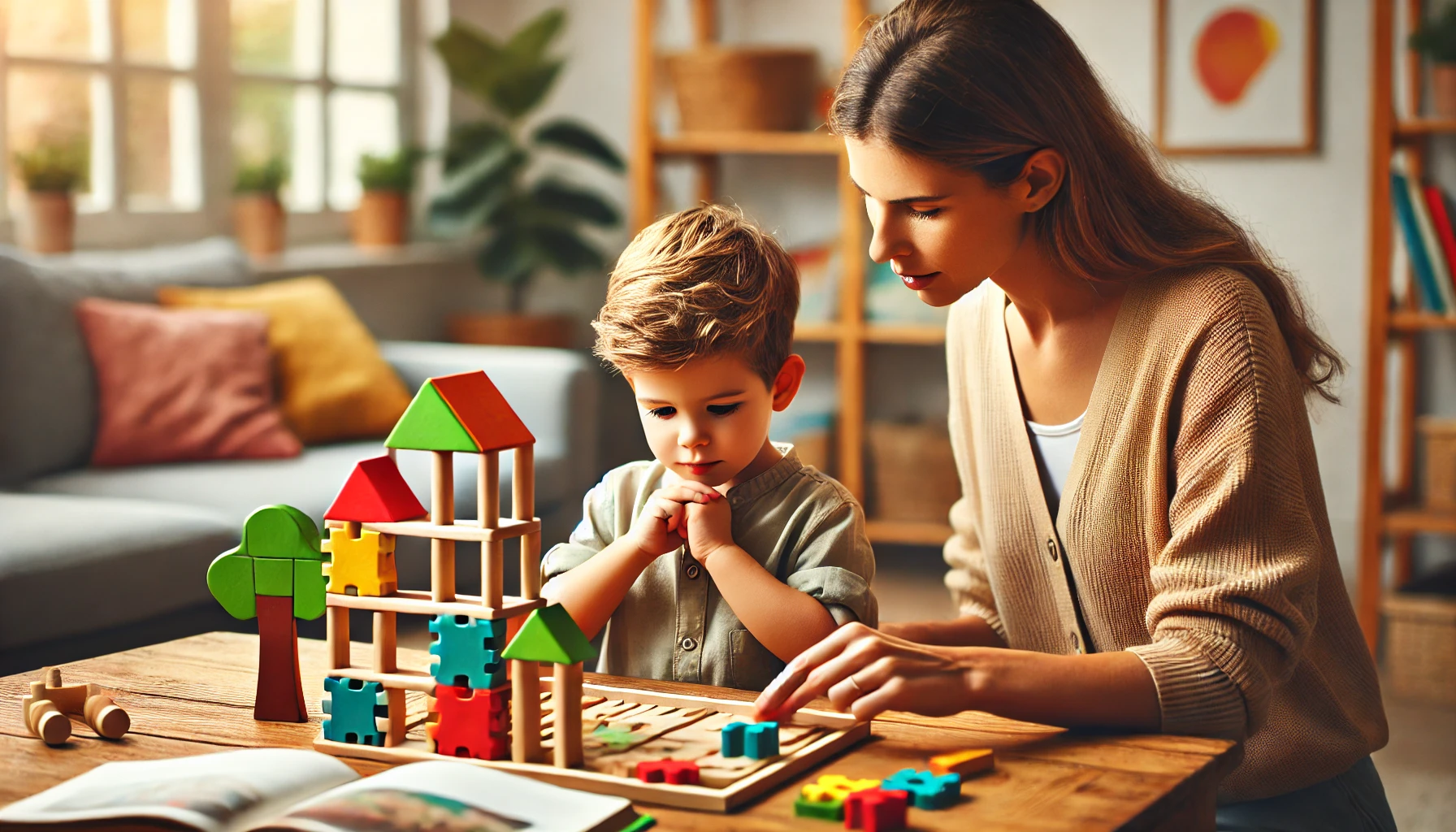How to Teach Young Children About Problem-Solving in Everyday Situations
Problem-solving is an essential skill that helps children develop independence, critical thinking, and resilience. Teaching young children how to analyze situations, explore solutions, and make decisions prepares them to handle challenges confidently. Parents can encourage problem-solving through daily activities, role-playing, and discussions. In this article, we’ll explore practical ways to help children build problem-solving skills at home.
Why Teaching Problem-Solving is Important
- Builds confidence – Helps children trust their ability to find solutions.
- Encourages independence – Teaches kids to handle small challenges on their own.
- Develops creativity – Encourages thinking outside the box.
- Improves decision-making – Helps children evaluate options and choose wisely.
- Strengthens resilience – Encourages kids to keep trying even when things are difficult.
1. Encourage a Problem-Solving Mindset
Teaching children that problems are opportunities for learning helps them stay positive.
Activity Idea:
- When they face a challenge, say, “Let’s figure this out together!”
- Encourage effort by saying, “It’s okay to make mistakes—that’s how we learn.”
- Praise problem-solving attempts: “I love how you tried different ways to build that tower!”
What Kids Learn:
- That challenges are part of learning
- The importance of persistence
- Confidence in their ability to solve problems
2. Use Open-Ended Questions
Asking questions encourages children to think critically about possible solutions.
Activity Idea:
- Instead of giving answers, ask, “What do you think we should do?”
- If they struggle with a puzzle, say, “Can you try a different piece?”
- Discuss daily situations: “What can we do if it rains and we can’t go outside?”
What Kids Learn:
- How to think through challenges
- Decision-making skills
- Creativity in problem-solving
3. Teach Step-by-Step Problem-Solving
Breaking problems into steps helps children approach them logically.
Activity Idea:
- Introduce a simple problem-solving process:
- Identify the problem
- Think of possible solutions
- Try one solution
- Evaluate the result
- Practice this with small challenges like cleaning up a mess or choosing a snack.
What Kids Learn:
- Logical thinking
- The importance of trying different solutions
- How to reflect on what works best
4. Encourage Trial and Error Through Play
Letting children experiment with different solutions helps them learn through experience.
Activity Idea:
- Provide building blocks and challenge them to build a strong tower.
- Let them figure out how to fit puzzle pieces together.
- Offer simple science experiments, like testing which objects float or sink.
What Kids Learn:
- The value of persistence
- Hands-on problem-solving skills
- How to learn from mistakes
5. Use Role-Playing to Solve Social Problems
Practicing real-life scenarios helps children develop social problem-solving skills.
Activity Idea:
- Act out a situation where two children want the same toy and discuss fair solutions.
- Role-play how to ask for help when they don’t understand something.
- Teach conflict resolution phrases like, “Let’s take turns” or “Can we find a way to share?”
What Kids Learn:
- How to handle social challenges
- The importance of compromise
- Effective communication skills
6. Encourage Group Problem-Solving
Working together helps children learn teamwork and different perspectives.
Activity Idea:
- Do family challenges, like building a blanket fort together.
- Assign team-based tasks, like making a meal or organizing toys.
- Encourage older siblings to help younger ones figure out simple problems.
What Kids Learn:
- How to work collaboratively
- The benefits of listening to others’ ideas
- Leadership and teamwork skills
7. Teach the Value of Patience in Problem-Solving
Helping children stay calm when solving problems strengthens their resilience.
Activity Idea:
- Use deep breathing exercises when they feel frustrated.
- Encourage them to take breaks and return to a challenge later.
- Remind them, “Some problems take time to solve, and that’s okay.”
What Kids Learn:
- Emotional regulation in challenging situations
- The importance of patience
- Strategies for managing frustration
8. Praise Problem-Solving Efforts, Not Just Success
Recognizing effort encourages children to keep trying, even if they don’t find a solution immediately.
Activity Idea:
- Say, “I love how you tried different ways to fix that!”
- Celebrate problem-solving attempts, not just correct answers.
- Encourage them to reflect: “What did you learn from this challenge?”
What Kids Learn:
- The importance of effort and persistence
- That mistakes are part of learning
- How to reflect on their experiences
Final Thoughts
Teaching young children about problem-solving in everyday situations helps them build confidence, creativity, and independence. By encouraging a problem-solving mindset, using open-ended questions, and providing hands-on challenges, parents can help children develop skills that will benefit them throughout life.
